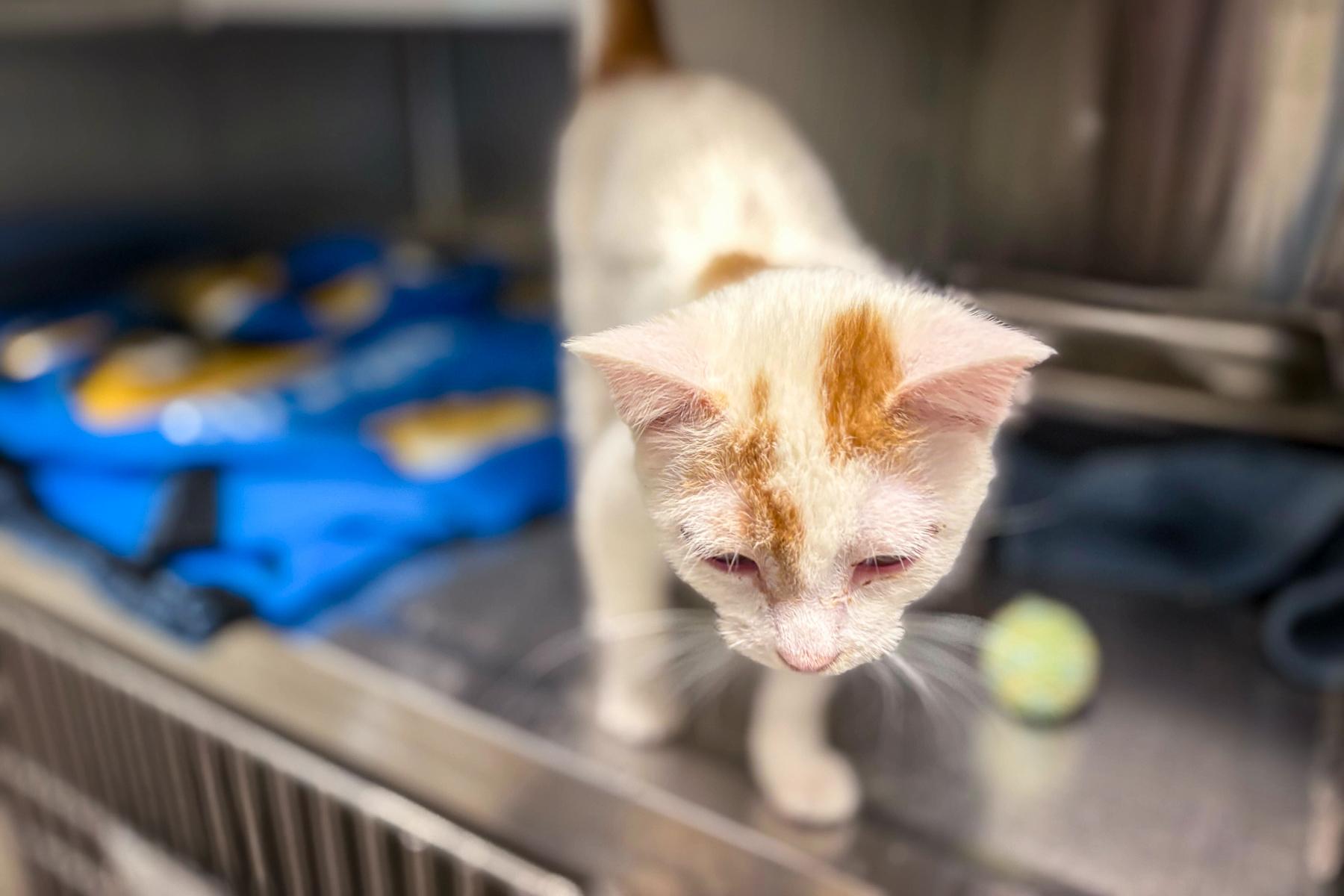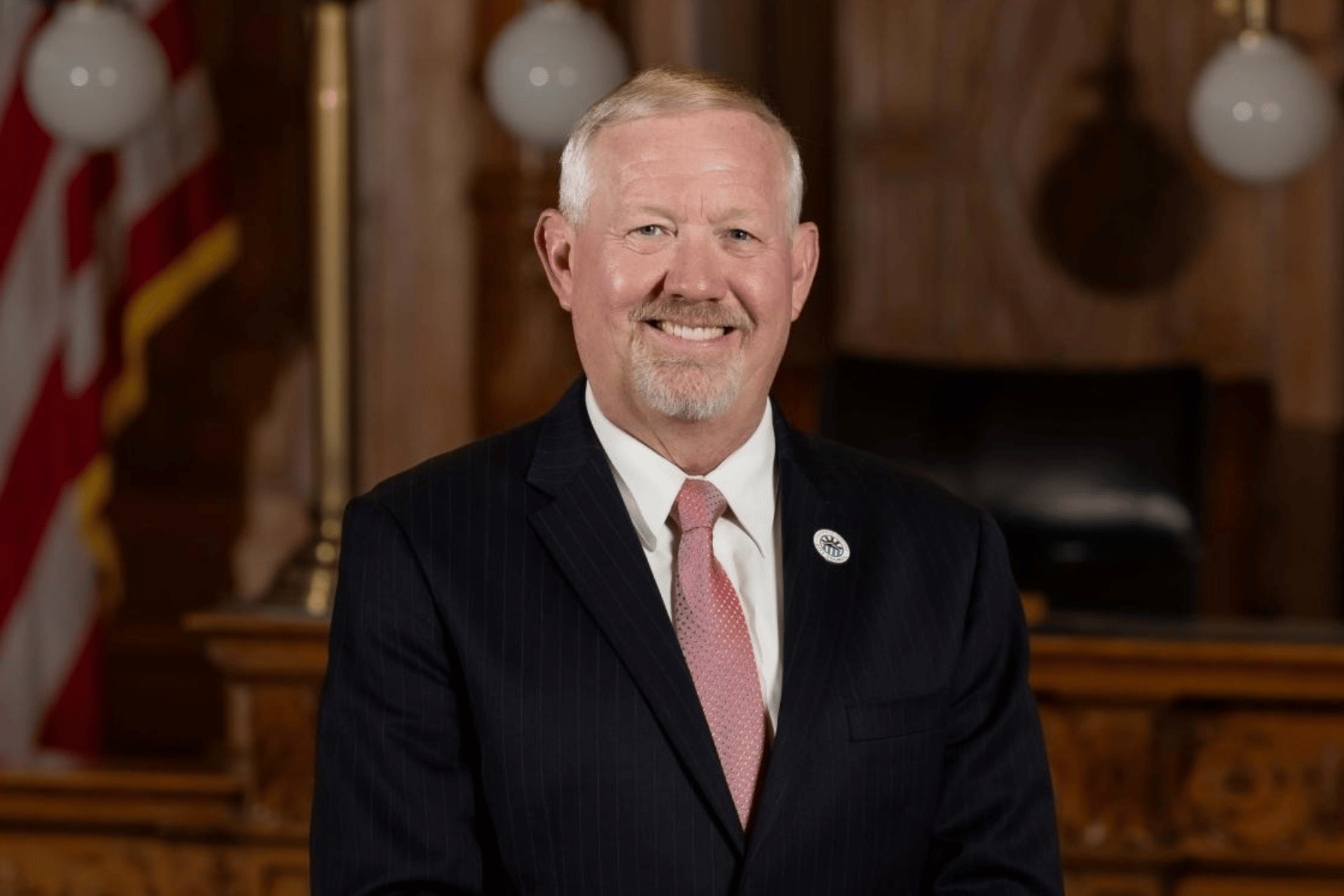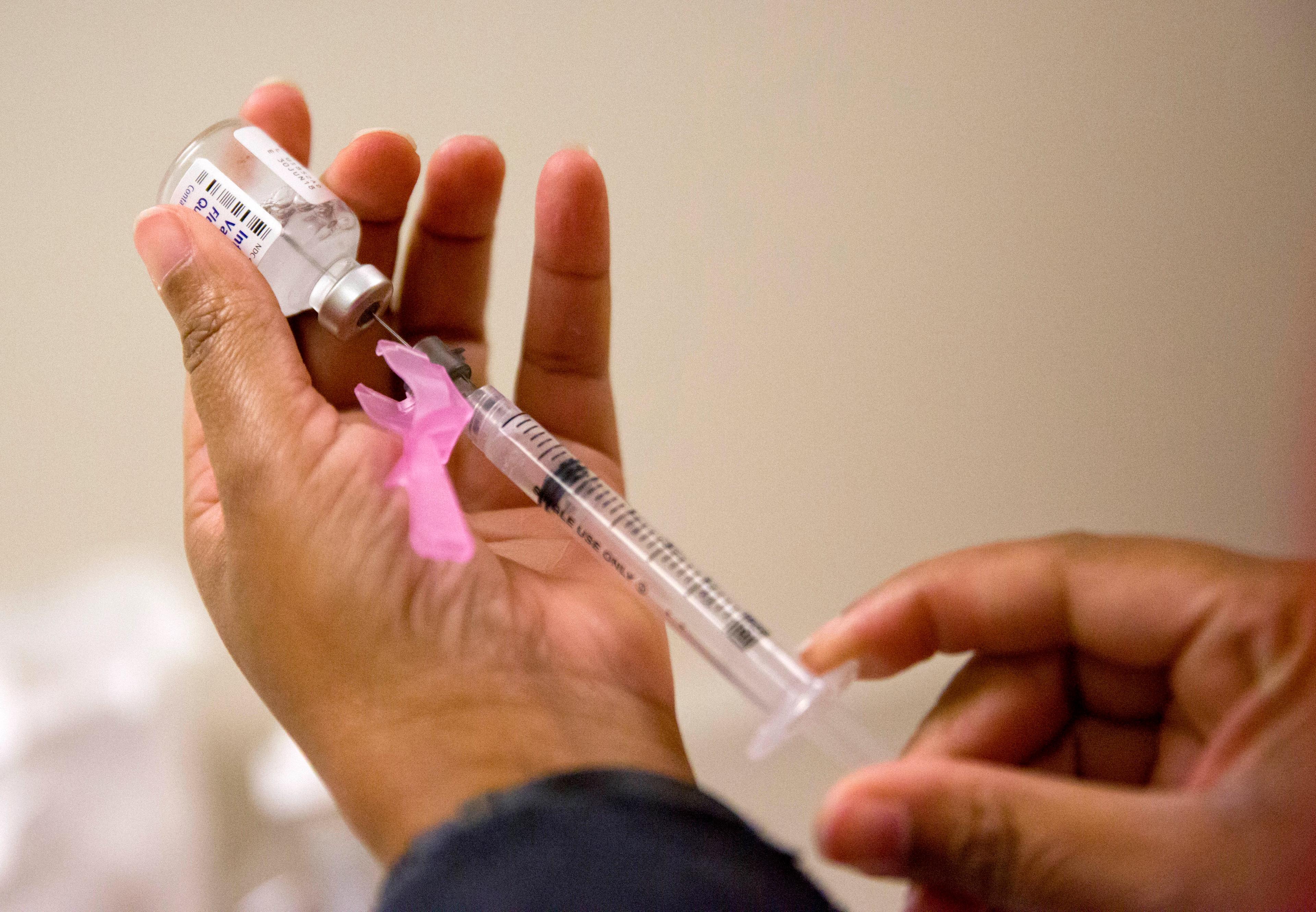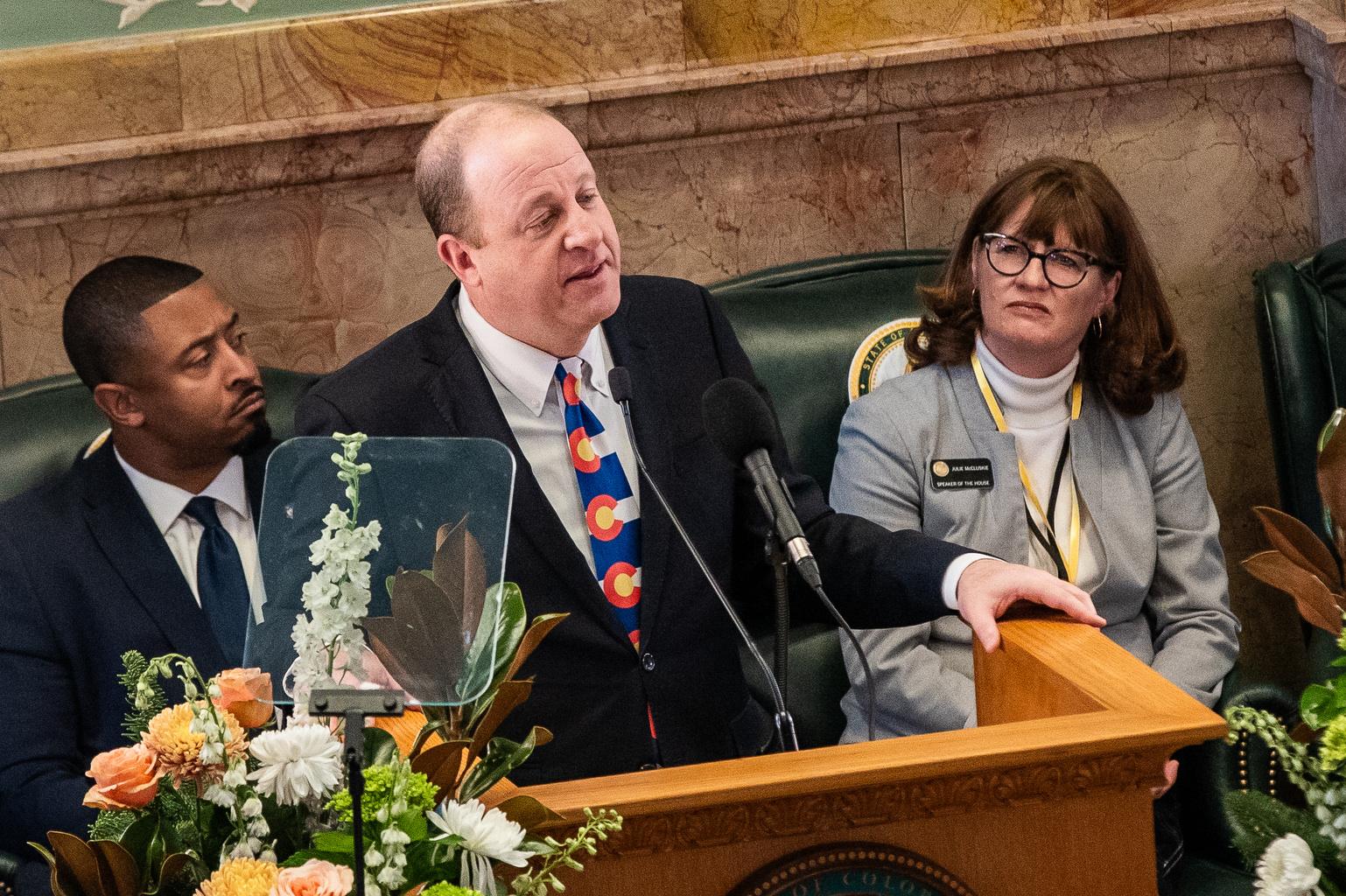
Immigration, housing, Space Command and his usual bevy of pop culture references — Gov. Jared Polis’ annual agenda-setting speech ranged from the southern border to the edges of Middle Earth.
This was his second-to-last State of the State address as governor, and Polis told the assembled lawmakers that he’s taking the perspective of finding opportunity in obstacles “as we drive progress and prosperity - as we climb higher - in the year ahead.”
The nearly hour-long speech started with a moment of silence for former President Jimmy Carter, whose funeral had concluded less than an hour earlier, and went on to cover a lot of familiar themes Polis has highlighted throughout the years, from the need to make Colorado more affordable to a desire to streamline state government.
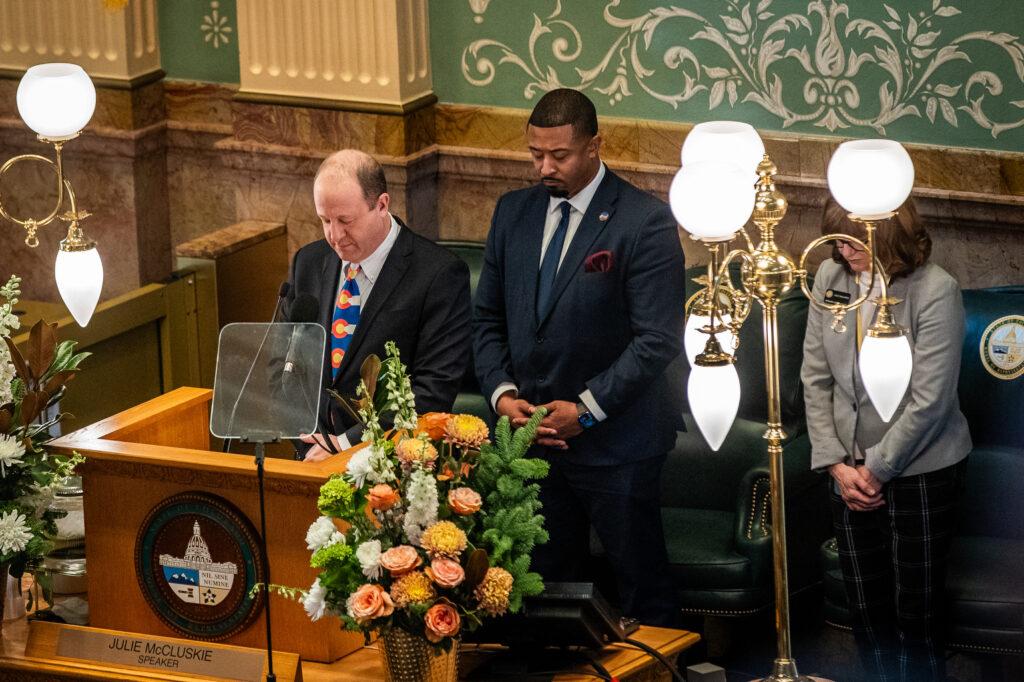
He also looked ahead to the incoming Trump administration.
“My principle is always: I will work with anyone and everyone when it’s good for Colorado, and I will oppose anyone and everyone, and do everything in my power to protect Colorado when it hurts our people and state,” he said.
In a nod to a fight that could get new life with Trump’s return to office, Polis declared early on that Colorado is the “rightful home of Space Command.” Officials in Alabama are hopeful the president-elect will return to his earlier decision to relocate the Command from Colorado Springs to their state.
Polis also acknowledged the issue that could have a big impact on his agenda: the state’s tight budget situation. Colorado faces a shortfall of roughly $1 billion, savings that will need to be found in this year’s and next year’s budgets.
The governor’s balancing proposal has gotten a lukewarm reception from lawmakers in both parties. In Thursday’s speech, Polis went light on details but said he wanted to work with lawmakers on the Joint Budget Committee to avoid bad outcomes.
“This is going to be hard,” he told lawmakers, “so hug a JBC member if you see them.”
Here are five big takeaways from the speech:
Looking ahead, Polis promised to work with the Trump administration where there’s common ground but mostly focused on differences
Noting that he also opposed President Biden’s tariff on solar panels, Polis said he would push back on incoming President Trump’s proposal for broad-based taxes on imported goods that would “raise the costs of everything, from groceries to housing to energy and so much more.”
The governor also spent time on immigration. While he said immigrants who follow the law and contribute to society should have a chance to stay in this country and pursue the American Dream, Polis also emphasized that he wants to see a crackdown on those who commit crimes.
“I hope that President-elect Trump and Congress work together quickly to secure the border, stop human trafficking, and stop the illegal flow of guns and drugs, and we welcome more federal help to detain and deport dangerous criminals,” he said.
After the speech, some Democratic lawmakers objected to how he framed the issue.
“It's very disappointing when Democrats are repeating those harmful talking points from Republicans around strengthening the border and that migrants are criminals,” said Rep. Elizabeth Velasco of Glenwood Springs. She immigrated to the U.S. from Mexico as a teenager.
“We are community members and we are moms and daughters and family members that are working hard, having two to three jobs to pay for rent."
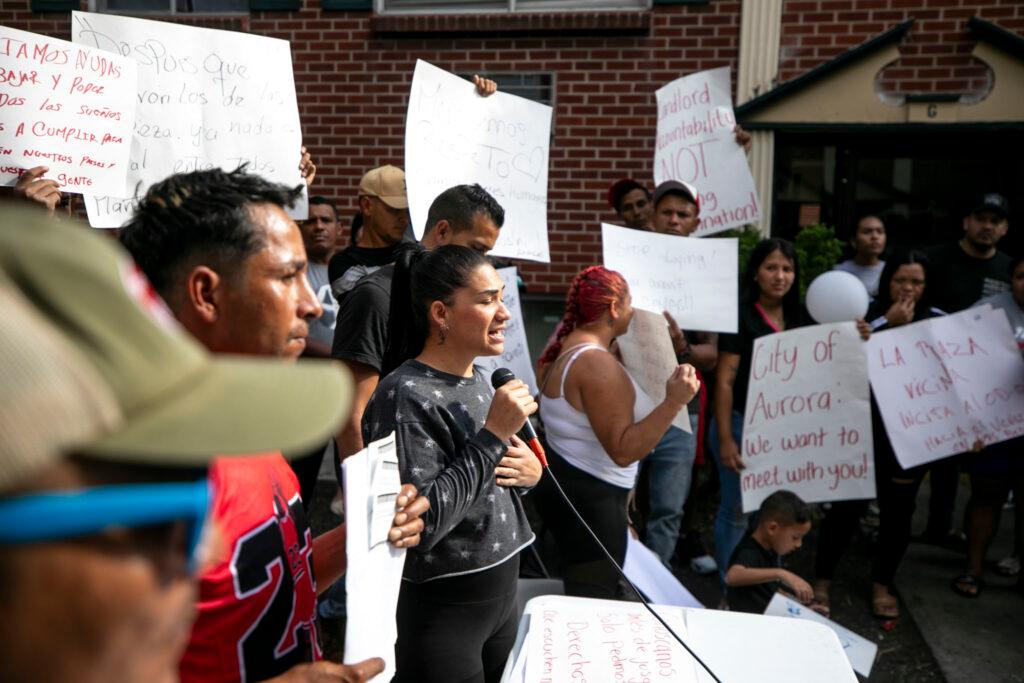
Colorado law bans local law enforcement from cooperating with immigration authorities in a variety of ways. Velasco said she and others are looking into proposals to strengthen that policy.
Meanwhile, the Republican House leader was pleased with what she heard, saying it mirrored comments from her own speech on the legislature’s opening day.
“We are glad the Governor echoed my statements on the floor… that violent, illegal immigrants who harm any and all Colorado citizens, especially children pose a significant threat to public safety and must be addressed,” said House Minority Leader Rose Pugliese.
Echoing a big Republican theme, Polis urged lawmakers to cut regulations but didn’t give any specifics
Last month, Polis announced he was taking steps to improve government efficiency by repealing hundreds of old and obsolete executive orders, some dating back a century. It was a point he made rather theatrically with the aid of a chop saw.
In his speech, Polis asked lawmakers to go further to streamline government by cutting red tape in a less literal fashion.
“I urge the legislature, in partnership with the Colorado Chamber (of Commerce), Majority Leader Rodriguez, and Minority Leader Lundeen, to take a good look at Colorado’s laws and regulations and honestly question whether they are adequately balancing consumer protection, health and safety, while minimizing red tape and reducing costs for the private sector and for Coloradans.”
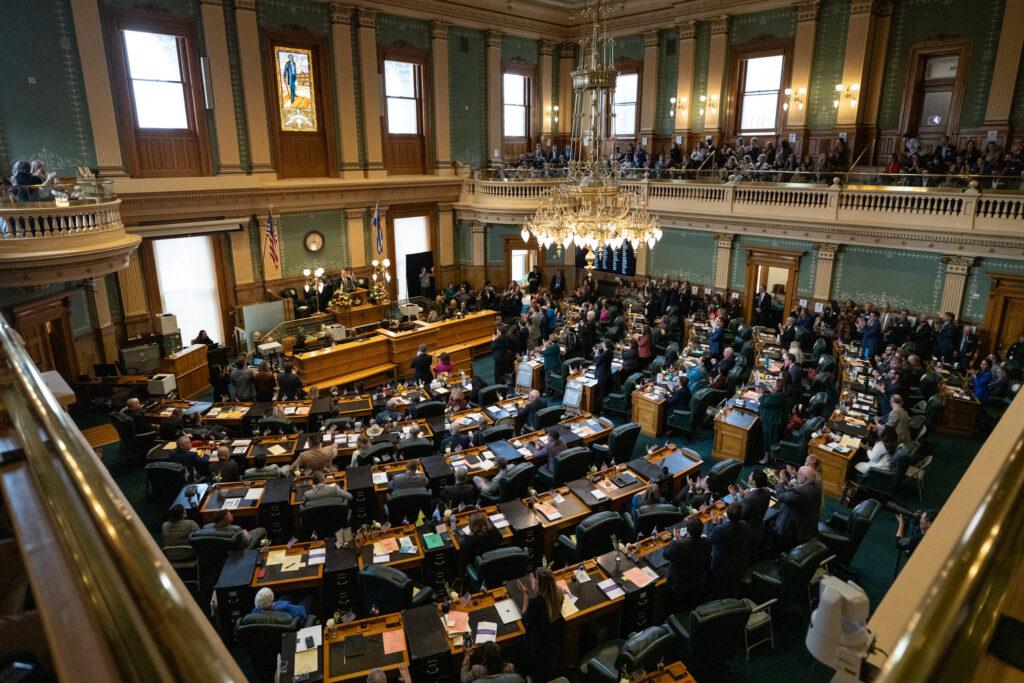
Republicans have long advocated for cutting regulations and see this as a potential area of common ground with the governor, but remain skeptical that he’s willing to go far enough in what they consider the right regulatory direction.
“The trajectory we're on right now is a bad trajectory,” Senate Minority Leader Lundeen said. “We will absolutely lean into that with him every opportunity we get. And quite frankly, we'll want to go further, I think, than he wants to go.”
Lundeen said Senate Republicans plan to unveil a comprehensive plan next week that includes a list of specific regulations they want to cut.
A word of warning to members of his own party when it comes to labor policy
Democrats have already unveiled an effort to make it easier for workers to form unions by rolling back the state’s Labor Peace Act, which requires a second employee vote before a union can charge fees for representation. Polis pushed the lawmakers working on that bill to try to find a compromise with business groups, essentially saying he wouldn’t sign anything unless all sides were on board.
“If there is a possible agreement to change the status quo that has served to avoid significant disputes for more than eighty years, let’s work together to find it,” he said.
For Republican Rep. Matt Soper of Delta, it was an intriguing signal that Polis will draw the line on more progressive policies.
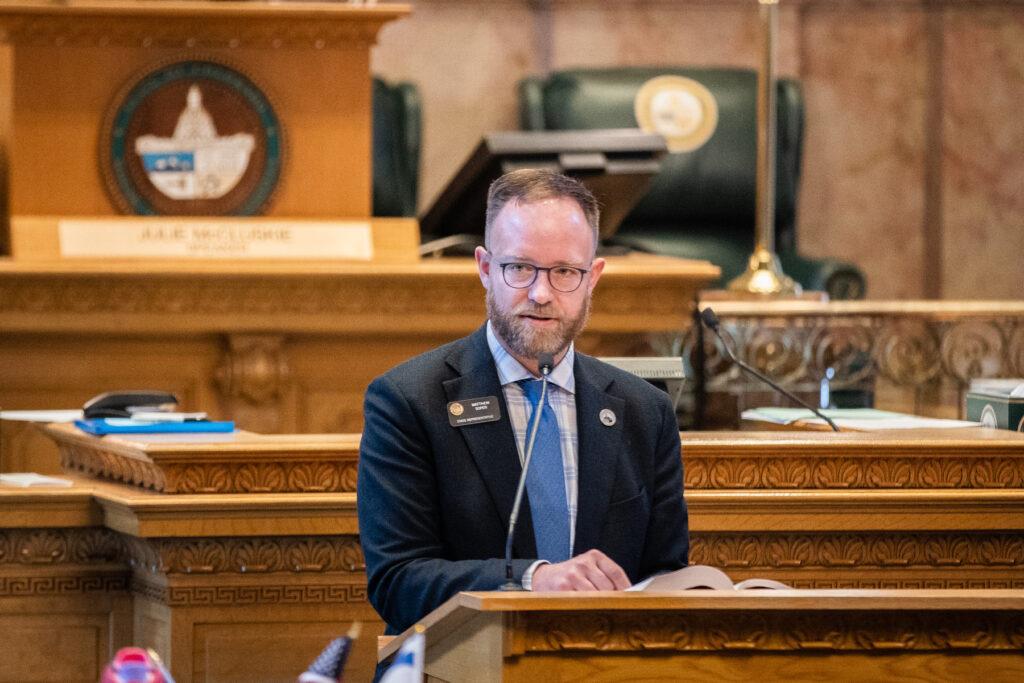
“Basically saying industry and business and labor would have to work together before he considers any changes to the Act, I mean, that was a pretty bold statement that he made, which was telegraphing to me that he's likely to veto anything that doesn't have a really good balance for change,” said Soper.
But Rep. Jennifer Bacon, the Assistant House Majority Leader and a co-sponsor on the proposal, said the governor is fully aware that she and others have already been talking with business groups about their bill.
“We have to recognize that for the sake of business, we can't put workers in a place where they're unsafe or that they can't earn,” she said. “So he is very familiar with the conversations.”
Polis returned to his vision for a Colorado with more affordable housing — especially condos — built around transit
Housing issues continue to be a central priority for the governor. Polis urged lawmakers to build on the policies they’ve implemented in recent years to increase housing density around transit hubs, eliminate occupancy limits and parking requirements, and lower property taxes.
Looking forward, he highlighted several new policies that he believes will help build more housing.
“To narrow the gap between supply and demand, we must continue to expand choices, speed up timelines and reduce costs for new housing to come to market,” Polis said.

One major way Polis wants to increase housing supply, especially for first-time home buyers, is by incentivizing more condominium development, and that means wading into the thorny topic of when and how builders can be held liable for construction defects.
In a nod to years of legislative fights over the issue, Polis said, “Let’s turn the page and have a real dialogue about what is preventing condos from being built, and solve it.”
Polis highlighted a construction defect bill from Senate President Coleman, of Denver, and Rep. Shannon Bird, of Westminster. He did not mention a separate proposal on the topic from Rep. Bacon.
“It is really important that we build the inventory, but we don't do so at the risk of homeowners,” said Bacon after the speech, “We can't tell them ‘buy at your own risk.’”
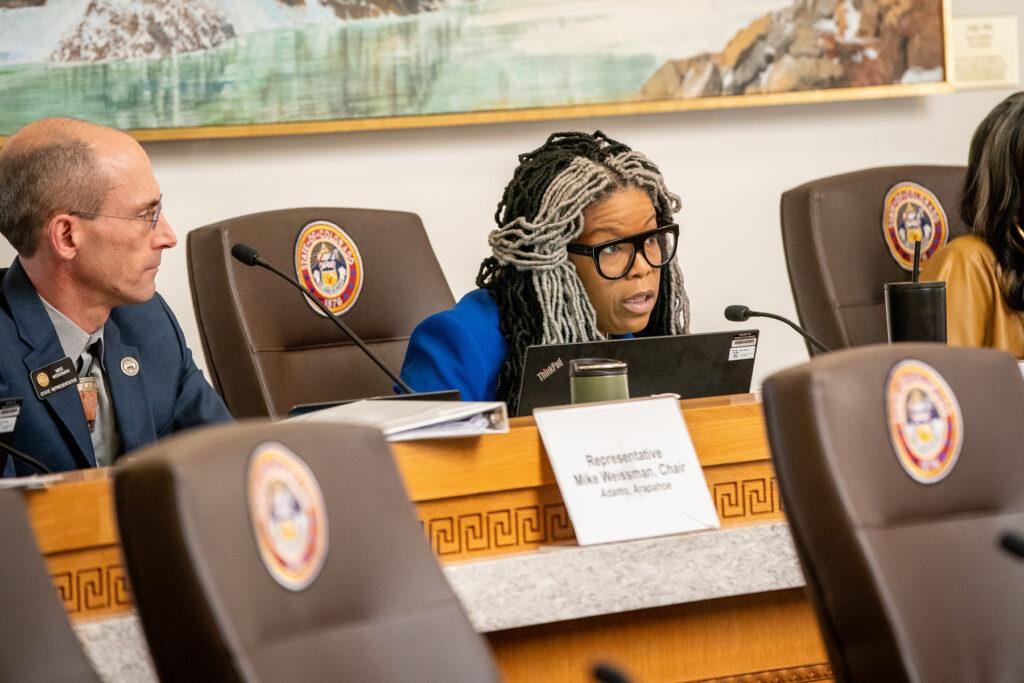
Coleman said backers of the two bills are in talks to craft construction defect policies that complement each other.
For their part, Republicans have called for reforms to construction defect laws for years, and now that Polis and Democrats are prioritizing it, some say they’ve been shut out of developing the policy.
“They have not engaged Republicans on those bills, which is very, very disappointing,” Republican Sen. Lisa Frizell said after the governor’s address. “You want to have the conversation? Let's have the conversation.”
Polis highlighted several other efforts his office is working on with the legislature to increase housing supply. They include cutting down the number of stairways required in some buildings, making it easier for churches and other religious institutions to build housing on land they own, and clearing the way for more factory-built homes.
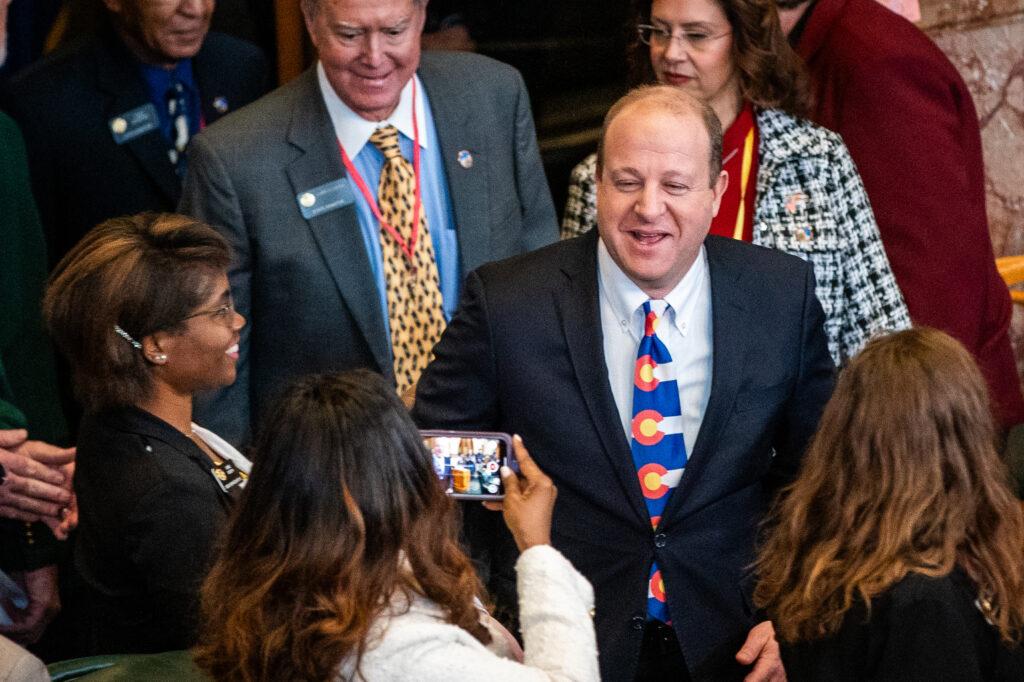
A final piece of the housing agenda Polis laid out is to bring down the cost of homeowners insurance, an increasingly urgent issue as wildfires, hailstorms and other natural disasters grow in size and frequency. And he deployed a much-memed movie quote to acknowledge the solutions won’t be easy.
“Just as Lord of the Rings fans know that one does not simply walk into Mordor, one does not simply fix homeowners insurance,” Polis said. “Many factors contribute to the soaring cost. But we need to start somewhere, and we need to start now.”
Polis also reiterated his commitment to developing higher-density housing around transit routes and called for increasing bus and train stops across the state to make public transportation more accessible and convenient.
Two controversial issues the governor didn’t bring up: guns and wolves
In an unexpected turn, Polis devoted a few lines of his speech to a very specific type of crime.
“Livestock theft is unfortunately not a thing of the past, and we are committed to holding cattle rustlers accountable,” he said, noting state agencies are working with local law enforcement to crack down on those who steal or harm cattle.
But he was silent on another threat to livestock in parts of the state.
Republicans criticized the governor for what they considered too little attention given in general to Colorado’s farmers and ranchers in his speech, and especially when it comes to the impacts of wolf reintroduction.
And it wasn’t just the speech where they say Polis is overlooking the impact of wolves. Republican Assistant House Minority Leader Ty Winter said Polis should have dedicated more funding in his proposed state budget for farmers and ranchers who are victims of wolf depredations.
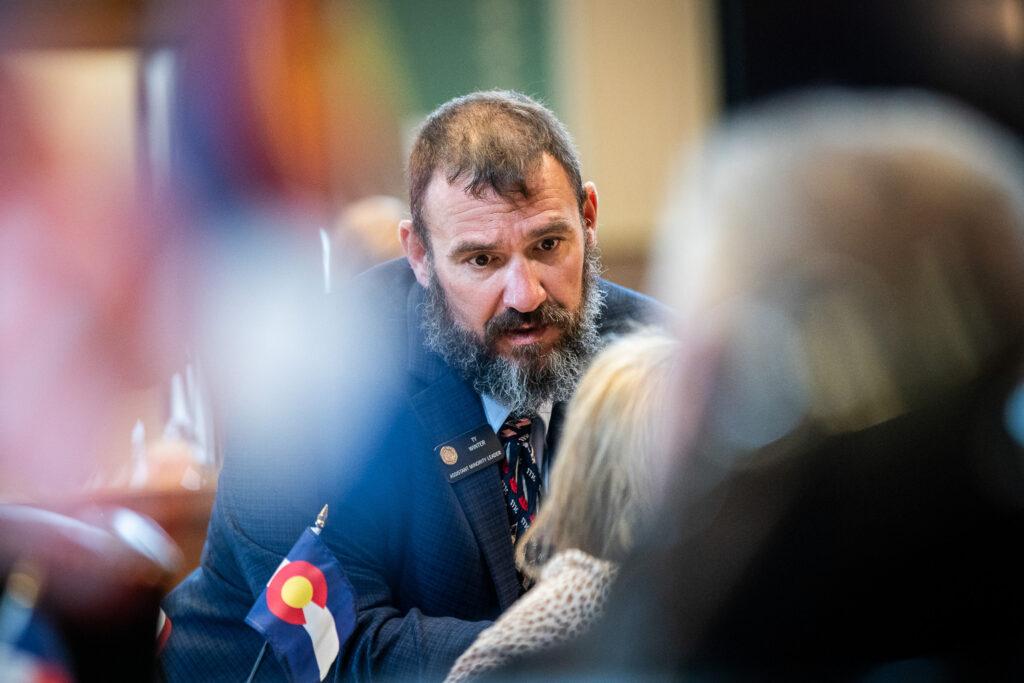
“There was no discussion of the wolves in the budget. Our ranchers are going to be getting the short end of the stick,” Winter said. “Your tax dollars need to be used to refund these farmers and ranchers who have been the lifeblood of Colorado.”
Another hot-button issue Polis only briefly talked about was gun legislation. He mentioned one bipartisan proposal coming this year that would strengthen penalties for stealing a firearm, regardless of the gun’s market value.
But Polis made no mention of a controversial gun bill that has already been introduced. It would ban the manufacture, sale and purchase of firearms that use detachable magazines, as well as certain firearm attachments like bump stocks and rapid-fire trigger activators.
Democratic Sen. Tom Sullivan of Centennial is a main sponsor. His son was killed by a gunman using a high-capacity magazine during the 2012 mass shooting at an Aurora movie theater.
Sullivan and other backers say the ban would be a way to enforce Colorado’s high-capacity magazine ban. But the proposal would effectively end the sale of many firearms considered to be ‘assault weapons.’
This story was produced by the Capitol News Alliance, a collaboration between KUNC News, Colorado Public Radio, Rocky Mountain PBS, and The Colorado Sun, and shared with Rocky Mountain Community Radio and other news organizations across the state. Funding for the Alliance is provided in part by the Corporation for Public Broadcasting.



